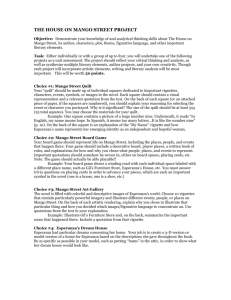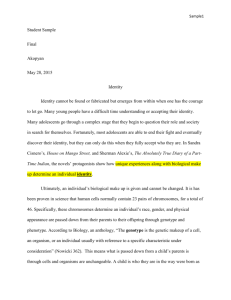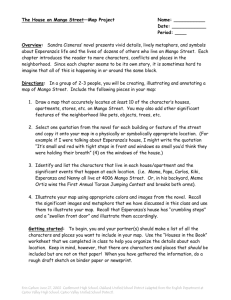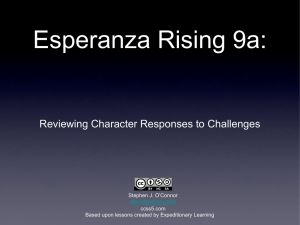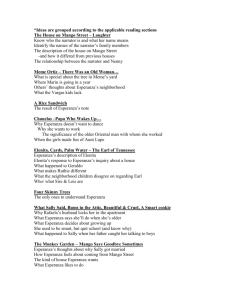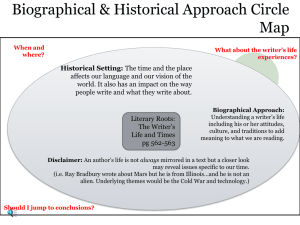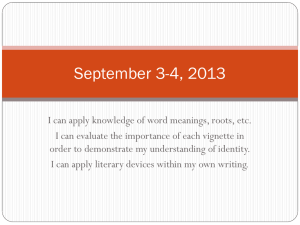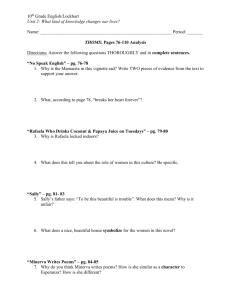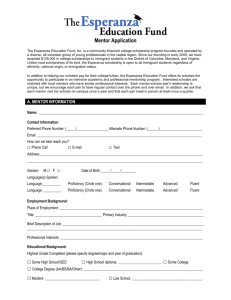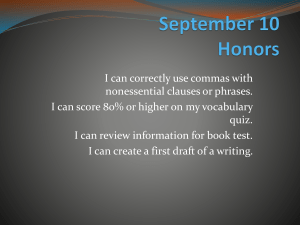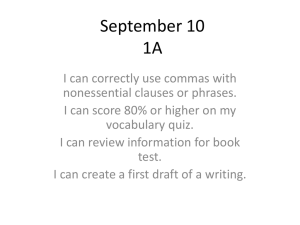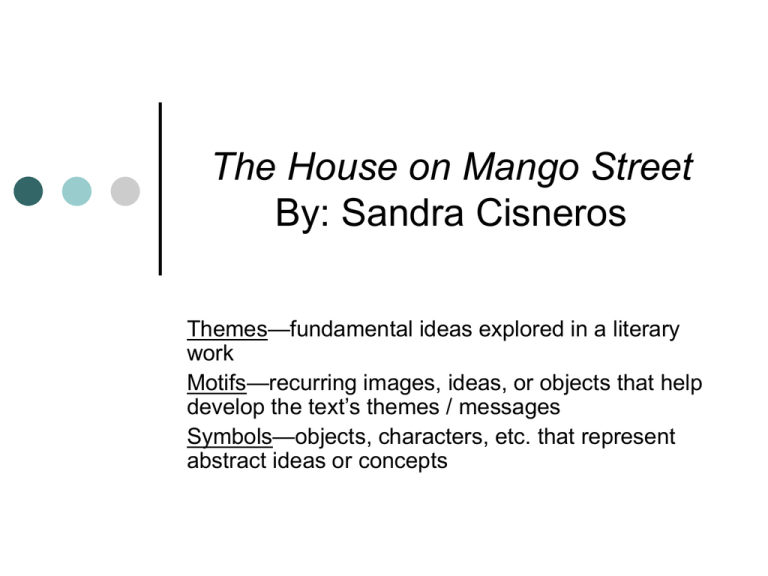
The House on Mango Street
By: Sandra Cisneros
Themes—fundamental ideas explored in a literary
work
Motifs—recurring images, ideas, or objects that help
develop the text’s themes / messages
Symbols—objects, characters, etc. that represent
abstract ideas or concepts
Themes—
The Power of Words
Words imprison people
“No Speak English” (76)—Mamacita is
imprisoned inside her apartment
because she does not speak English
Papa could not choose what he ate
when he first moved to America
because he only could say
“hamandeggs” (77)
Themes—
The Power of Words
Words set people free
“Minerva Writes Poems” (84)—
Minerva’s only escape from her
difficult life (two kids and a husband
who left) is writing poetry
“A House of My Own” (108)—
Esperanza ultimately escapes Mango
Street by becoming a writer
Themes—
The Struggle to Define Yourself
“My Name” (10)—In the beginning,
Esperanza wants to change her identity by
changing her name, cutting herself off from
her family and heritage
“Mango Says Goodbye Sometimes” (109)—
In the end, she comes to accept her
community, her heritage, and her family and
realizes that the most important way she
can define herself is through writing
Themes—
Growing Up
Dangerous / Scary
“The Family of Little Feet” (39)—
Esperanza and her friends walk
through the neighborhood in high
heels, only to realize that they are
getting too much attention from men
“The First Job” (53)—At Esperanza’s
first job, she is tricked into kissing a
much older co-worker and feels afraid
Themes—
Growing Up
Exciting
“Beautiful and Cruel” (88)—Esperanza is
finding her independence and power
Confusing
“Sire” (72)—A boy who is dating another girl
stares at Esperanza, making her unsure of
whether or not she wants the attention
“Sally” (81)—Esperanza doesn’t know
whether or not to believe the bad rumors
about her friend
Motifs—
Names
Esperanza is one of the only
characters with just one name…
Nenny is a nickname for Magdalena
Aunt Lupe is the English version of the
Spanish name, Guadaloupe
Multiple names emphasize the mix of
cultures and languages on Mango
Street
Motifs—
Falling / Flying / Floating
Examples: Angel Vargas and Meme
both fall from heights, Marin is waiting
for a star to fall to change her life,
Esperanza sees herself as a red
balloon
Flying may represent people’s hopes
of changing their lives and falling may
represent their failures to do so
Motifs—
Women by Windows
Mango Street is full of women who are
trapped—by husbands, fathers, violence,
poverty, children, domestic duties, etc.
Four women on Mango Street are trapped
in their apartments: Mamacita, Rafaela,
Minerva, and Sally
Esperanza is determined never to become
a woman sitting by a window watching the
world go by
She will be free and independent
Symbols—
Circles
Examples: apples (26), sugar donuts
(26), tortillas (31), light bulbs (59),
records (71), balloons (99), etc.
Circles represent the ways many
characters are trapped in cycles of
violence and poverty, as well as the
ways community can help break those
cycles
Symbols—
Trees
“Four Skinny Tress” (74)—Esperanza
doesn’t belong on Mango Street, just
as the trees don’t belong in the city
Both she and the trees persevere
despite their poor living conditions and
the obstacles in their paths (ex: the
trees are surrounded by cement and
Esperanza is surrounded by poverty
and low expectations)
Symbols—
Shoes
“The Family of Little Feet” (39)—High heels
symbolize adolescents’ budding sexuality
and their newfound interest in the opposite
sex
“Chanclas” (46)—Esperanza is ashamed of
her worn out, little girl shoes and she is
embarrassed to dance—she wants to grow
up so she can begin a new life
Shoes represent experience (both good and
bad) and growing up

